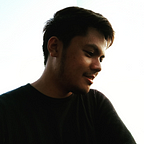We Filipinos are not ‘pasaway.’ We are badly governed.
Today was my first time to commute to work since this lockdown started. I was nervous, of course, but I was amazed at the level of discipline demonstrated by everyone I met from home to office. Buses, jeepneys, and tricycles, strictly operating at limited capacity, put up plastic dividers to ensure commuters’ physical distancing. Businesses, big or small, provided temperature checks and sanitizer sprays. My office required workers to bring and wear slippers before coming inside the building. Everyone I met, wearing face masks of any kind, complied. In many respects, I can compare this level of discipline to that shown by the people of Taiwan in the short time I was there in February. (Taiwan has been COVID-free for over two months now!)
And this is not just an anecdotal claim. Google mobility data showed that Filipinos are among the most “immobile” populations in Southeast Asia, with activities related to recreation and services declining by 50% from early this year [1]. The most obvious factor for this is the community quarantine, the implementation of which has been punitive and at times unfair. But that means many of us followed the rules, with the exception of the country’s top officials and authorities who partied or malled but never once suffered a day in jail. That means we are taking this virus very seriously, but God knows whether Harry Roque, our chief economists, or the Congress do. That means we relatively do not lack self-discipline as a people, contrary to the popular position made official in presidential briefings and media reports.
That also means we have done and are still doing our part to the extent that we can, no matter how gravely this has affected our businesses, our employment, our families, our mental health, and almost every aspect of our quarantined lives.
But not being “pasaway” can only do so much in the face of issues that have long plagued the nation and are now magnified by the pandemic.
No law so harsh can stop the spread of the virus in crowded barangays that face recurrent water shortage and a crisis in sanitation infrastructure. No community quarantine can force unemployed and hungry people to stay at home when social amelioration measures fail to reach them in a regular and timely manner. No current PUV modernization plan can meet the needs of the riding public if that would entail phasing out jeepneys. No border security was able to prevent the spread of the virus in poor provinces with inadequate healthcare systems, thanks to the brilliant Balik-Probinsya Program. No lockdown so long can contain the virus without mass testing and rigorous contact-tracing and isolation strategies.
Why we are at this point — 47,873 confirmed cases and 1,309 totally preventable deaths, and counting — is not born out of our lack of self-discipline. As Quintos argues in his policy paper [2], the dismal state of our public health system is “the result of deliberate policy choices, fiscal priorities and institutional design made over many years up to the present.” Emphasizing self-discipline over policy is a ruse, an excuse by the government to not do even the bare minimum, an attempt to pass to us what we entrusted our leaders to do.
As the number of COVID cases accelerate, we must remain careful, germophobic, and updated in the coming weeks. And as we do our part, we also challenge our government to do its own.
— —
(1) https://www.philstar.com/…/govt-said-filipinos-are-pasaway-…
(2) https://ncpag.upd.edu.ph/wp-co…/uploads/covid19response.pdf…
